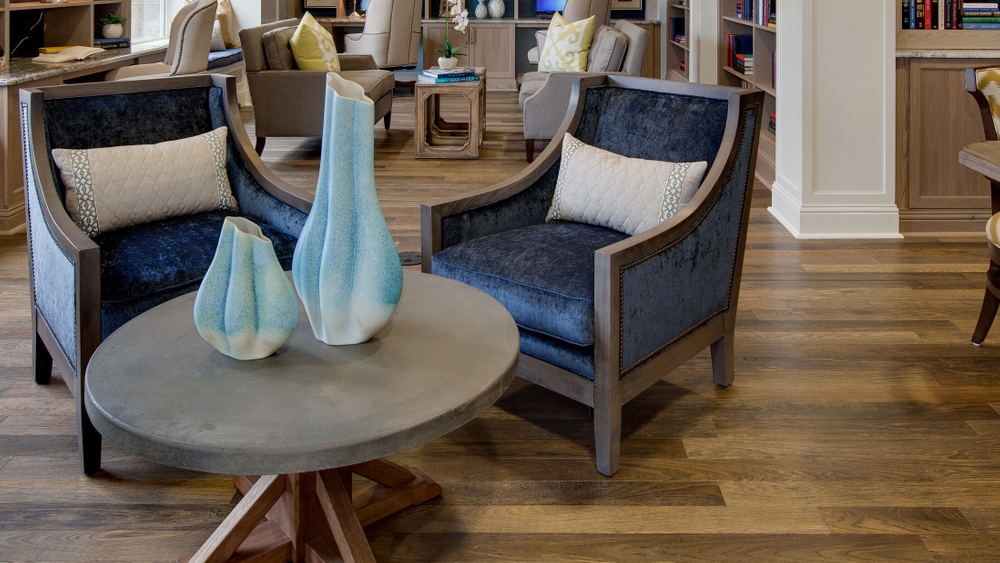
The search for flooring that is beautiful, durable and cost-effective seems to be neverending. Add the fact that consumers today are also concerned with sustainability, and the search seems impossible. However, manufacturers are seeking to end this search through the use of alternative materials such as engineered hardwood and bamboo flooring.
Engineered hardwood and bamboo flooring are two excellent choices for any space where wood flooring is wanted, but the concern over longevity and strength seem to outweigh the advantages.
When choosing between the two options, you should consider their differences before purchasing, such as their appearance, sustainability, durability and application.
Standard Wood vs. Engineered Wood
Engineered hardwood flooring is everything people love about traditional hardwood, without the disadvantages.
Engineered hardwood is made of real wood, just like standard hardwood. However, some engineered woods have the added strength of acrylic in the top layer, making it around 300% harder than traditional hardwoods. The increased density makes for a more durable floor that shows less wear and tear in high traffic zones.
Another alternative to standard wood floors is bamboo flooring. Bamboo has skyrocketed as an alternative building material in several aspects of construction, from flooring to wall veneers to furniture.
Bamboo floors are made from harvested bamboo stalks, which are sliced into strips and treated to remove starch. The strips are pressed together with an adhesive to create planks, then treated with stains or colors.
Bamboo remains a favorite alternative to wood flooring for consumers that are either concerned about the environment or find the distinct look of bamboo to be appealing.
Appearance
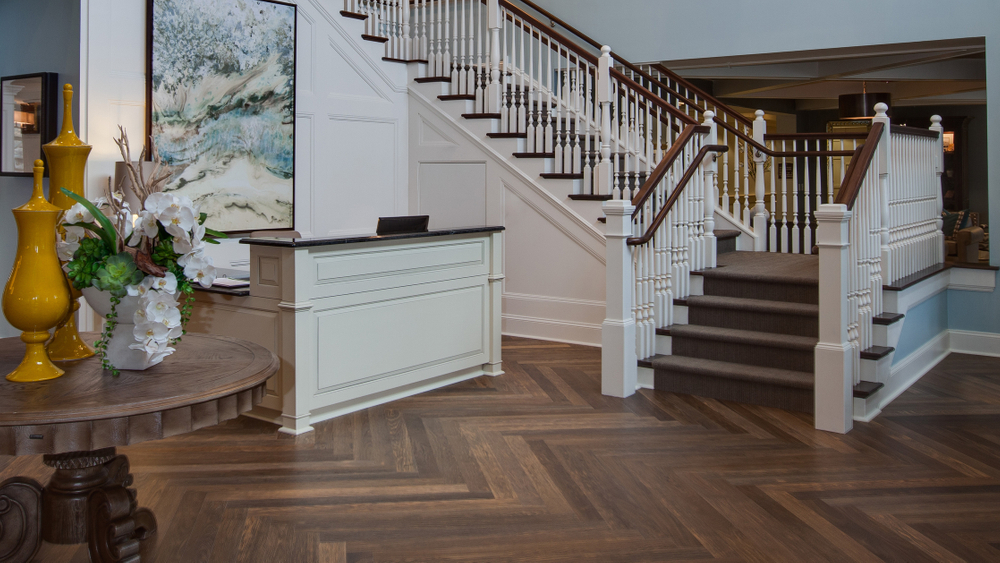
When it comes to floors, you want to find a material that balances function with beauty. Engineered hardwood and bamboo flooring both have a warm, organic feel yet look quite different.
Bamboo flooring has a signature style, with straight grains and minimal contrast for a clean, modern look. It comes in lighter shades of tan with yellow-tones, but it's possible to find brands that make a variety of darker shades.
Engineered hardwood looks just like regular hardwood flooring and comes in a wide variety of stains, colors and grain contrasts. From the deepest charcoal to a light, natural finish, you’ll likely be able to find the exact look you want with engineered hardwood. You can even find a finish that looks just like bamboo.
Just like standard wood, engineered hardwood flooring can also be plain-sawn or rift and quartered depending on whether you want a smooth, consistent grain or a wood with lots of knots and distinctive character.
Engineered hardwood also comes in a variety of wood species and finishes, offering designers nearly limitless options for whatever their space requires.
Sustainability
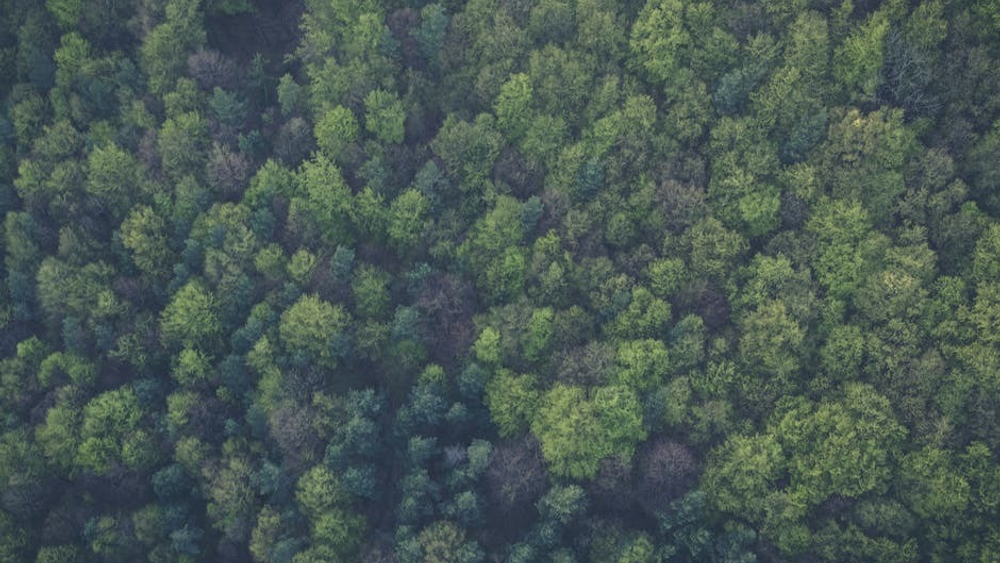
Both bamboo and engineered hardwood flooring are sustainable choices. Deforestation is a very real concern and striving to choose "greener" products helps reduce negative impacts on the environment.
Bamboo grass is often viewed as a more eco-friendly choice compared to engineered hardwood, as it regenerates faster (in just 3-5 years) and consumes more carbon dioxide than regular trees. However, the majority of bamboo grass is grown out of the country, which expends extra energy during the harvesting and shipping process.
Engineered hardwood can be a sustainable option as well, but only if you purchase through a company that harvests from responsible woodlots. An easy way to check is to see if the company you're interested in is FSC-certified, such as Nydree. FSC certification means that the wood has been sourced from new-growth, responsible forests, and is the easiest way of knowing if the flooring you want is a green choice.
Durability
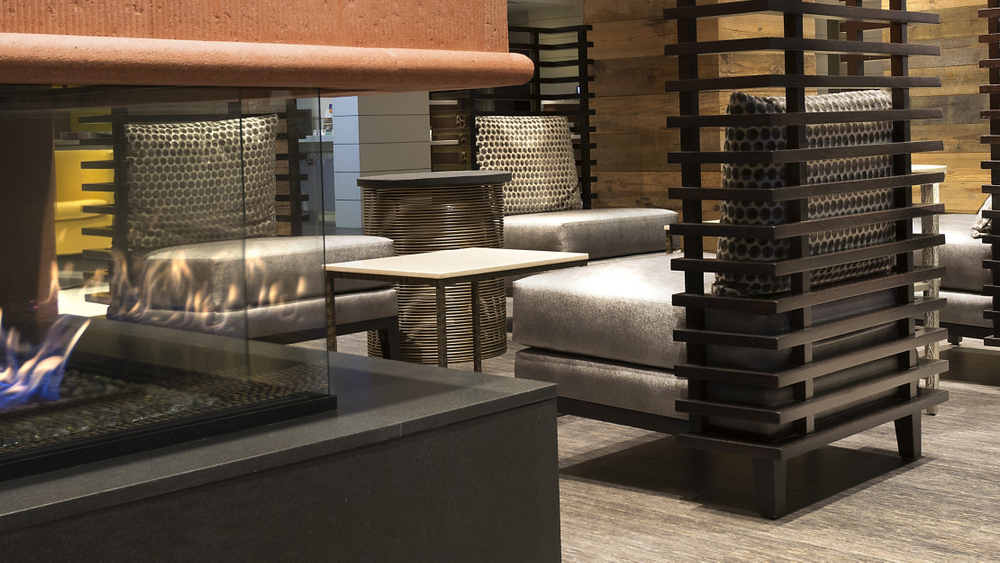
Durability is one of the most important features of any floor. Flooring is an investment, and it’s important to ensure the chosen material is going to last for a long time.
Durability is naturally linked to density: the denser the material, the stronger it is. Flooring density is measured by the Janka hardness rating, which tests the amount of force needed to press a tiny metal ball halfway into the board.
Bamboo has a Janka rating averaging 1400. This is higher than woods like white oak, walnut and ash.
Although impressive, it doesn't have the same durability as engineered hardwood, which as a hardness rating averaging 2,200 to 8,000, depending on the wood species. After being infused with acrylic, most engineered wood species are at least twice as hard as natural wood.
Engineered hardwood tends to outperform bamboo flooring in a few other areas, too: it’s less likely to become scratched or dented and is moisture-resistant.
Application
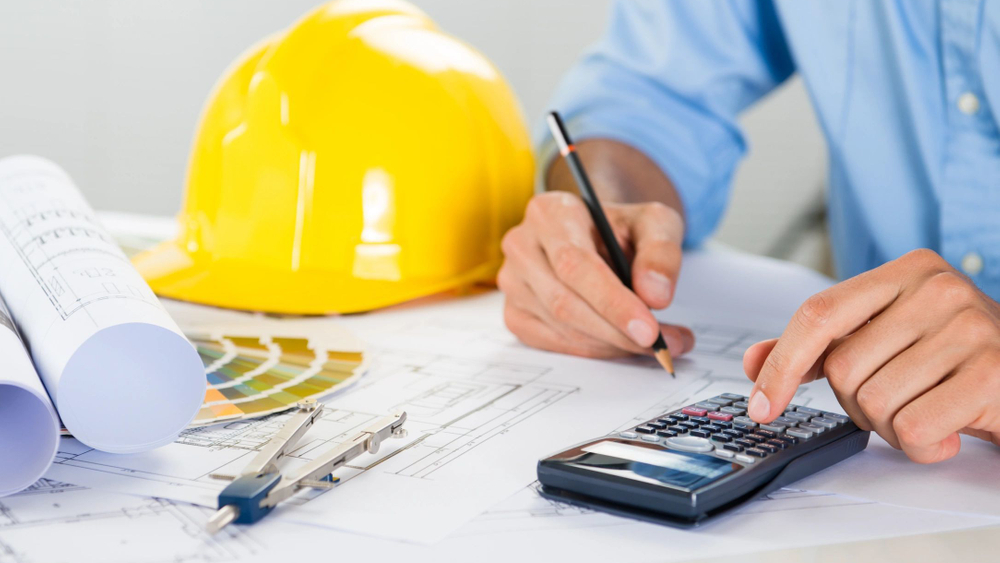
Engineered hardwood and bamboo are both very versatile and can be used in essentially any setting, from residential to commercial. Nevertheless, engineered hardwood and bamboo do have different characteristics that affect where they are best used.
Engineered hardwood flooring can be used in almost any space, except for those with high-moisture and humidity (i.e. bathrooms). Unlike standard wood floors, engineered wood can be used in residential kitchens.
Bamboo flooring is often marketed as being more resistant to moisture than wood and may be seen in bathrooms, especially half-baths.
Engineered hardwood was originally designed to handle high foot-traffic of public and commercial settings. When it comes to very busy spaces, such as an office, lobby or a large family home, it's going to withstand a lot more abuse than bamboo.
Wood Remains a Winner
While bamboo flooring can be a durable and attractive flooring choice, engineered hardwood still outperforms. The numerous styles and colors of engineered hardwood, inherent durability and hardness, and value of this material make it a worthwhile investment for any application, from residential to commercial use.
If you are looking for sustainable, engineered hardwood flooring, visit Nydree for a wide variety of options perfect for any commercial or residential.
